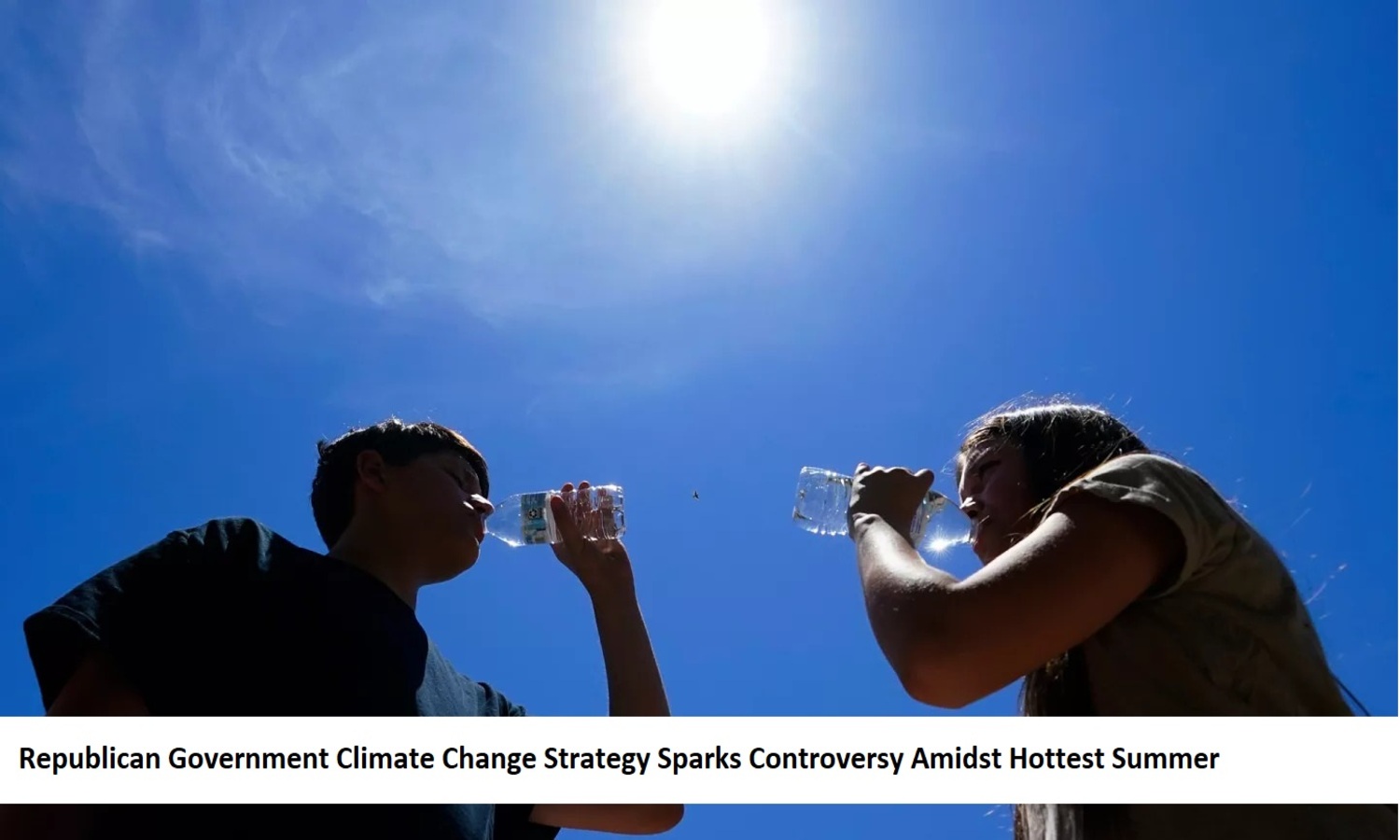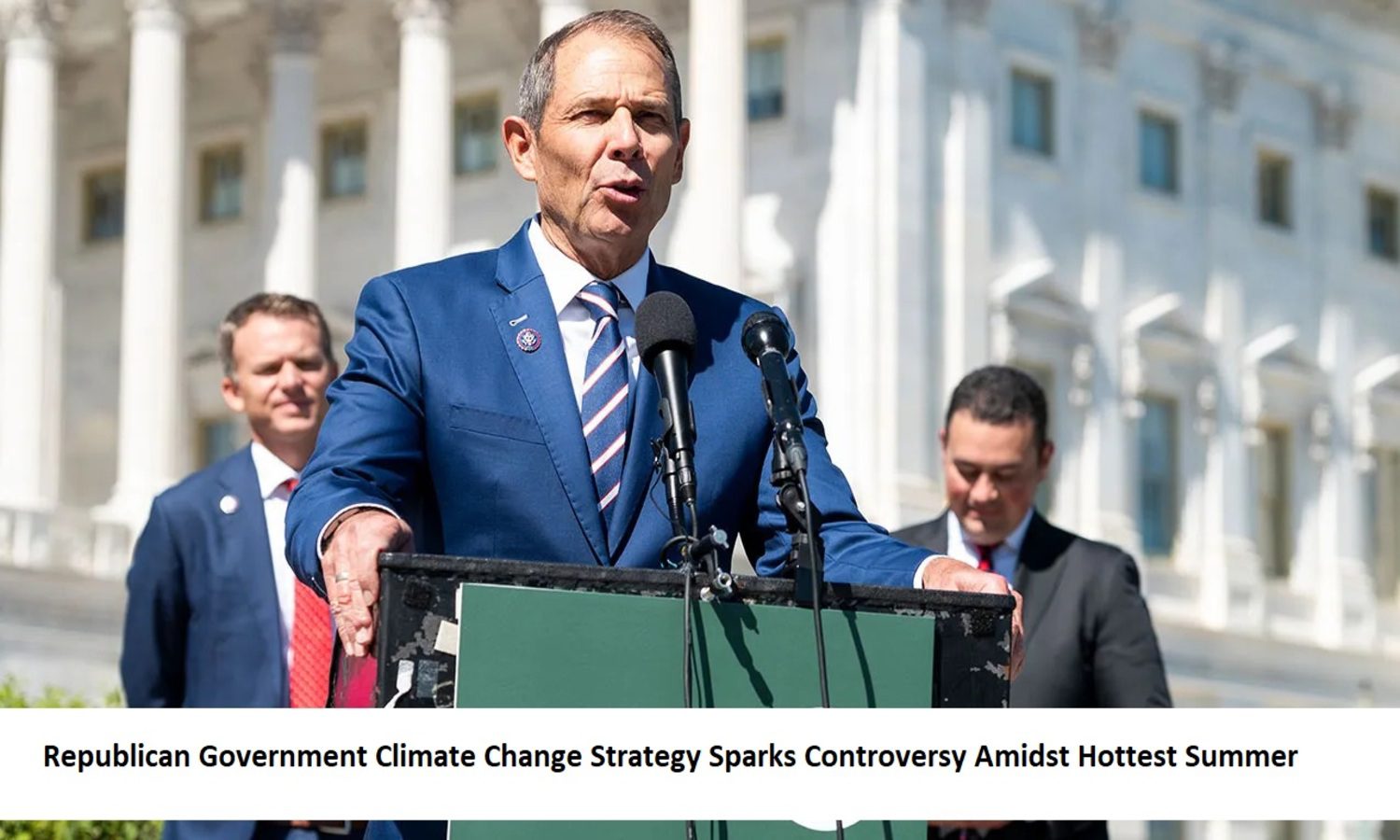Republican Government Climate Change: Conservatives are preparing for a Republican government that will end global warming programs in the hottest summer ever. Right-side Heritage Foundation manages Project 2025. Paul Dans created a 180-day “battle plan” for a Republican president.
Earth and energy goals diverge from the government’s. Car, oil, and power plant emissions would no longer be regulated. It also suggests terminating most federal clean energy projects. During this time, fossil fuel use increased, raising global temperatures.
The daring $22 million project will have leaders and a plan if Republicans win the 2024 midterm elections. This 1,000-page blueprint empowers the president and overhauls the executive office. This movement includes climate change deniers like the Heartland Institute and Competitive Enterprise Institute.
The major Republican presidential contenders ignored Project 2025. The plan’s creators are close to former President Donald J. Trump, a leading Republican candidate in 2024. Changing names and roles is a fun project aim. Plan impacts most government entities.
Polls suggest Americans have varied climate change strategies. Republicans disagree, but Democrats and Independents value it. Project 2025 is on track. The Heritage Foundation study’s principal author, Mikael Kaandorp, said Republicans appreciated and understood it.
The grand plan ignores greenhouse gas emissions, which warm the globe and increase disaster risk. It values fossil fuels over pollution. Carbon waste is not reduced to delay climate change.
Climate change causes fights. Climate researchers believe that fossil fuels have raised global temperatures. Conservatives claim the full implications of human-caused climate change are still being studied. Scientific evidence supports this.


Republicans winning the White House in 2025 might affect the car sector and sustainable energy projects. Update a 2009 Environmental Protection Agency research that found carbon dioxide emissions harmful to the environment. The government may need help to reduce pollution.
Project 2025 is blamed for wanting to eliminate environmental regulations. Emissions worsen heat waves, droughts, and forest fires. It might slow the country and damage global climate change efforts. Climate change makes people demand long-term policies.
Climate change deniers argue Republicans should support it. Climate-concerned young Republicans want their party to be more smart. Project 2025 may not make sense in a rapidly changing political and ecological environment.
READ MORE: Unveiling the Secrets of Moving Planets: Discovering Earth-Sized Renegades Beyond Our Solar System
Our Reader’s Queries
How do politics play a role in climate change?
Today’s political landscape is shaped by various social and political movements dedicated to generating support for climate action. These movements, such as the climate justice movement, youth climate movement, and efforts to divest from fossil fuel industries, are crucial in building political momentum for addressing climate change.
What did Biden do to help climate change?
At the 2021 UN climate summit (COP26), Biden played a key role in initiating the Global Methane Pledge. Currently, 150 nations have joined the pledge and are dedicated to reducing their overall methane emissions by a minimum of 30% by 2030.
What has the US government done against climate change?
The EPA recently announced a final rule to reduce the production and use of HFCs in the U.S. by 85% over the next 15 years, as required by the AIM Act. This move is part of a global effort to decrease HFCs, which is projected to prevent up to 0.5°C of global warming by the year 2100.
What do Republicans think about fossil fuels?
The vast majority of Republicans and those who lean Republican (87%) believe that the U.S. should utilize a combination of fossil fuels and renewable energy sources. In the future, 57% of Republicans hold the belief that the U.S. should continue to rely on oil, coal, and natural gas without ever stopping.

